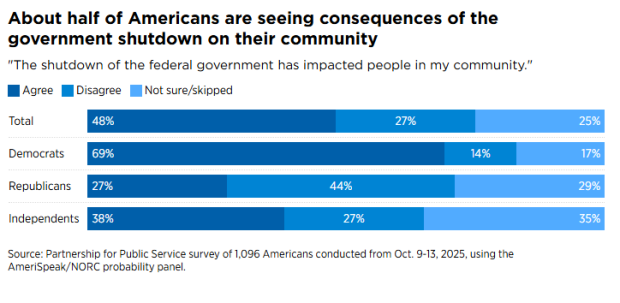Advertisement
America is under shutdown for the last 31 days and Gaza Strip has been under siege for the last 19 years. So, how did Gazans manage to survive and what lesson can American learn from Gazans during the government shutdown to make ends meet?
First of all, with almost no aid allowed in and food prices soaring, parents and children in Gaza are risking their lives to get even small amounts of food or safe water. Many are walking for hours, waiting in crowds, or dodging dangerous strikes and fire – only to return empty-handed.
However, Gazans have adapted to extreme food shortages by relying on a few meals a day, often skipping meals to feed their children. The UN World Food Program (WFP) reports that most families in Gaza survive on one meal a day, with one-third going entire days without eating. The meals available are often thin broths, lentils, rice, or a combination of herbs and olive oil known as "duqqa."
Since October 1, Congress failed to pass appropriations bills, leading to a lapse in funding for non-essential government operations. This situation can significantly disrupt employment and unemployment across the country.
The unemployment rate in Gaza is 47% and more than 80% of its population lives in poverty according to the United Nations.
The current unemployment rate in the US is 4.3% as of August 2025.
Gazans have adapted to life under siege through various strategies so Americans can take a lesson from Gazans under siege to get by during the shutdown. Here are some examples:
* Many Gazans are growing crops in limited spaces to provide for their families.
* Despite the blockade, Gazans are creatively managing resources such as water and food to sustain their daily lives.
* Charitable organizations in the US are stepping up to provide food and other essentials, to help alleviate hunger and suffering.
* In the US, we have United Way who tries to reach those most in need and provide funds to federal employees and SNAP participants (formerly known as food stamps).
* We have in America food banks, non-profit organization that collect, store, and distribute food to individuals and families in need, acting as a crucial resource in the fight against hunger and food insecurity. Food banks acquire food through various channels, including donations from grocery stores, food manufacturers, farms, and individuals.
* Stealing or posting threats on social media of so-called "Steal Day" across the country is counterproductive and should not be an option.
* Breaking the law would worsen matters and will result in harm, jail time, and criminal records.
* Posting Go Fund Me is a better and more honorable way than stealing.
* Using digital wallets: Some aid is distributed via digital wallets and convert it into real currency.
* Some Gazans use YouTube to talk about their daily life (reality TV) where they will earn money through Super Thanks.
* Seeking temporary employment with Uber or Lyft.
* Due to the scarcity of cash, some families in Gaza have resorted to selling their possessions to buy essential goods.
* Families in Gaza routinely skipping meals to leave more for children, the elderly, and the ill.
According to the latest data, there are more than 42 million low-income Americans who rely on SNAP benefits, including 16 million children, worry for the potential freeze in food assistance due to the government shutdown. If SNAP benefits stopped on November 1, that is today, this will spell bad news to many.
A new nationally representative survey conducted by the Partnership for Public Service finds the ongoing federal government shutdown is having a widespread impact on the American people and that the public is concerned the country will face greater problems if additional federal workers are fired. Nearly half of the country (48%) says the shutdown is impacting people in their community.
Having said that, the siege of Gaza which in a way resembles the US government shut down, but it affects all the population of Gaza Strip, which has population of nearly 2 million people. The good part is, the shutdown is temporary, and no bombs are dropped daily on American cities and towns from sea, air, and ground. That's marvelous news and comforting to know.
Mahmoud El-Youseph is a Palestinian freelance writer and retired U.S. Air Force veteran. He writes on U.S. foreign policy, Middle East affairs, and justice. Email: elyousseph6@yahoo.com

